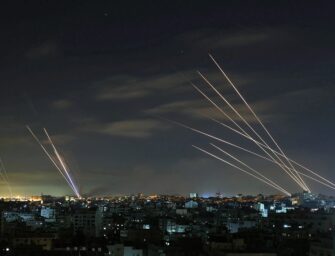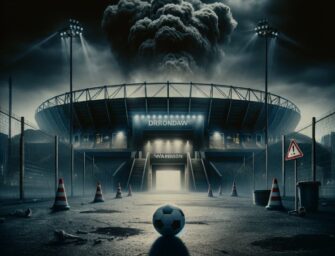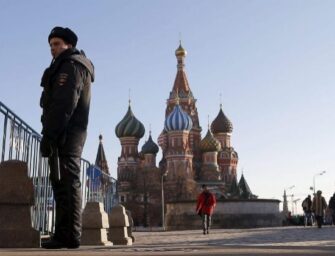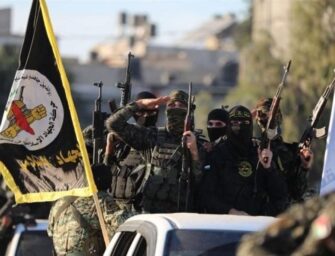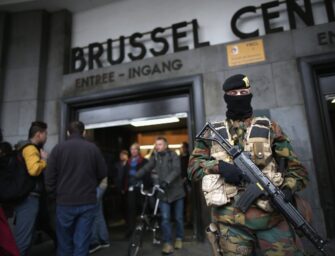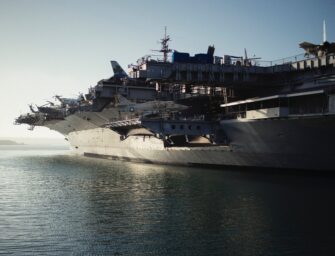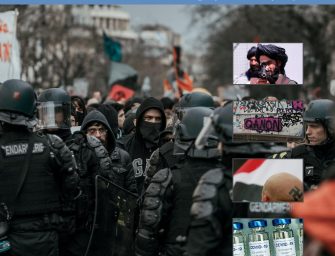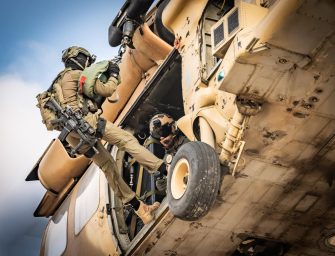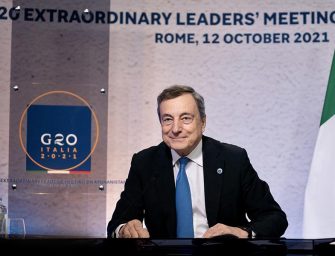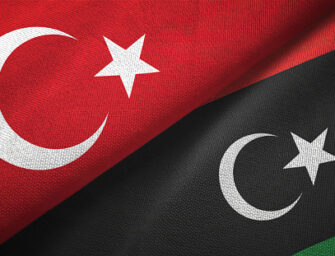Ukraine (D+95) Struggle for the Donbas: how the Russians are learning from their errors. By General Mick Ryan.
by Mick Ryan, AM, Strategist, Leader & Author, Retired Army Major General
@WarintheFuture
In the 95 days since Russia invaded
#Ukraine, I have explored adaptation and how military institutions learn during
war. Today I examine what the last couple of weeks in the Donbas tells us about
how the Russians are learning in the ongoing #adaptation battle.
Sir Michael Howard wrote in “The Uses and
Abuses of Military History” that military institutions normally get the
next war wrong, mostly for reasons beyond their control. As such, an important
virtue for military organizations must be adaptability to unexpected events.
In March I explored the concept of
adaptation in war, as well as how Russian transformation efforts since 2008
appear to have paid minimal dividends for them at the tactical and strategic
levels. In the last few weeks, the Russians have made steady, if slow, progress
in the conduct of its eastern offensive in the Donbas. The Russian advances is
an indication that they are learning from their earlier failures.
Before exploring this in detail, a
short detour is necessary to define a framework for exploring where the
Russians have learned. I will use some of the principles of war.Military
organisations use these principles to instruct soldiers, develop common
tactics, and to organise combat & support formations. The principles are,
in effect, maxims that represent essential truths about the practice of
successful wars, military campaigns & operations. In the context of this
exploration of Russian learning, three principles of war in particular stand
out. These are: selection and
maintenance of the aim; concentration of force; and cooperation.
In any military action, the aim
must be simple, widely understood and within the means of the forces available.
The initial Russian war aims were broad ranging and did not count on massive
western military aid to Ukraine. It quickly became clear that these aims were
beyond Russian military capacity. The Russians were using an invading military
that was smaller than that of the state it was attacking, and it failed. More
recently, the Russians – as highlighted in briefings by senior Russian officers
– have consolidated their aims to narrower objectives in the east. And they
have shifted their forces to give themselves a better chance at achieving these
tighter strategic goals.
Concentration of effort. Success in war often depends on
achieving a concentration of military force at the most time and place. This
should then be supported by efforts such as information operations and
diplomacy to magnify the impact of the concentrated military forces. And at the
higher level, the Russians have appointed a senior Russian general as the
overall commander of the Ukrainian campaign. He has overseen a brutal and
destructive approach in the east, but the Russians are likely to see their
limited gains as major successes.
But sustaining tactical learning to
generate an operational advantage will be a significant challenge given other
Russian leadership shortfalls. And is it too little, too late?
This begs a larger question: what
might be the impact of this Russian tactical learning be on the overall conduct
of the war? And given the intensity of Russia’s eastern operations, will they
remain capable of offensive operations after the next few weeks?
This depends on Russian logistics,
Ukrainian defensive strategy, the inflow of western aid, and the conduct of
Ukrainian offensives elsewhere that might draw away Russian forces. And
short-term tactical adaptation (though hard) is simpler than long term
strategic adaptation. Murray, Knox and Bernstein have written “it is more
important to make correct decisions at the political and strategic level than
at the tactical level. Mistakes in operations and tactics can be corrected, but
political and strategic mistakes live forever.”
Russia has demonstrated some
capacity to learn from its tactical failures. But its national ability learn
and adapt to the economic, diplomatic, informational and other impacts of its
flawed strategy to invade Ukraine remains to be seen. This will probably
prolong the war.
Editor Claudio Bertolotti, Director START InSight,
@cbertolotti1
What transitioning to a defensive strategy might mean for the Russians in Ukraine.
by Mick Ryan, AM, Strategist,
Leader & Author, Retired Army Major General
@WarintheFuture
While the Russian Army’s offensive in
the east continues, it is likely in the short term that they will reach the
limit of their offensive capability. As such, today I explore what
transitioning to a defensive strategy might mean for the Russians in Ukraine.
The Russian Army has been attempting
to re-boot its efforts in Ukraine. It fired senior commanders accused of
failure, reorganised combat units, begun digging in defensive positions north
of Kharkiv & conducted additional strategic missile strikes across Ukraine.
The focus of Russian forces at present
is eastern Ukraine, and in particular, securing the Donbas region. Compared to
the grand aspirations of Putin in the war’s early days, this is a relatively
modest target. And despite scaling back its goals, the Russian military is
still struggling to make significant progress in the face of the dogged defence
of the Ukrainians, and the massive inflow of western military aid. Thousands of
Russians soldiers have been killed or wounded, and hundreds of armoured
vehicles destroyed in the east of the country. For all this effort, the
Russians have gained little additional territory in the past month.
It is possible, to support their
offensive in the east, the Russians may launch attacks in the Zaporizhia and
Kherson regions. But,
given the scale of the Ukrainian military mobilisation, the amount of western
aid, and the demonstrated inability of the Russians to competently undertake
large scale operations, this too is unlikely to result in significant
breakthroughs. For this reason, it is likely the Russian capacity to continue
its offensive operations in Ukraine is close to reaching its high-water mark.
The Ukrainians have corroded the physical, moral and
intellectual capacity of the Russian military in Ukraine. The Russian
President and military high command will continue to demand advances, but at
some point in the next month or two, any capacity of the Russians to do so will
be at an end. Too many of
the Russian combat units are being frittered away, and too many of their
soldiers and junior leaders lack the will to give their ‘last full measure’ for
an institution that can’t even feed them properly.
We should not be under any
misconception that this means the Russians are defeated, or that they will soon
depart from Ukraine. The Russians will simply shift to a defensive strategy in
Ukraine. And while this may at first glance appear to simplify the Russian’s
problems in Ukraine, the reality is that it raises a new set of challenges.
The four challenges: loosing initiative,
governance, insurgency, morale
The first challenge is that they will
no longer have the initiative. The Russian Army, in a defensive strategy, will
be in a responsive mode. The Ukrainian Army will be able to decide where and
when it engages the Russians. In effect, the strategic, operational, and
tactical initiative will rest with the Ukrainians. This gives the Ukrainian
military high command flexibility about the time, place, strength &
sequencing of the inevitable counteroffensives it will conduct to recapture
territory.
A second challenge for the Russians is
that many of its units will shift from military operations to ‘occupation
support’ activities. In effect, soldiers will need to become governors in the
areas of Ukraine they still hold and which they seek to convert to Russian
colonies. Not only does this bleed off military forces to defend against the
Ukrainians, it requires a range of skill sets not normally resident in military
institutions, such as civil administration. And, as the Russians found in Syria
and Chechnya, it is extraordinarily expensive.
A third challenge for the Russian
occupiers, to compound their already massive problems, is that they will
probably have to deal with a nascent resistance movement. As the Ukrainians
have shown throughout this war, they are a proud, determined, and courageous
people. There are already reports of Ukrainian insurgents operating in southern
Ukraine. This will only grow with time in areas controlled by the Russians. And
the Russians know that these insurgents will be well supported by the West.
Finally, the Russian Army has a
problem with morale. In her essay
in Foreign Affairs, Dara Massicot(@MassDara) describes a
“culture of indifference to its personnel fundamentally compromises the Russian
military’s efficacy.” Overlaid with this cultural issue has been multiple
reports by intelligence agencies & media about Russian Army desertions, the
inability to retrieve its dead and lack of support to military families.
These challenges will only be
intensified by a long-term occupation where soldiers are poorly led, and
expected to be administrators, chase insurgents and win the hearts and minds of
patriotic Ukrainians. And large numbers of Russians will be required for an
Army of a occupation – many more than they have currently deployed in Ukraine.
The recent Ukrainian
decision to cease its defence of the Mariupol steelworks provided a small yet
pyrrhic victory for the Russians. But it is unlikely that there will be more of
such minor successes for the Russian Army. As their eastern offensive loses
momentum, the Russians will inevitably have to transition to a defensive
strategy in Ukraine. And in doing do, the Russian Army will confront a new
range of difficult challenges ahead.








